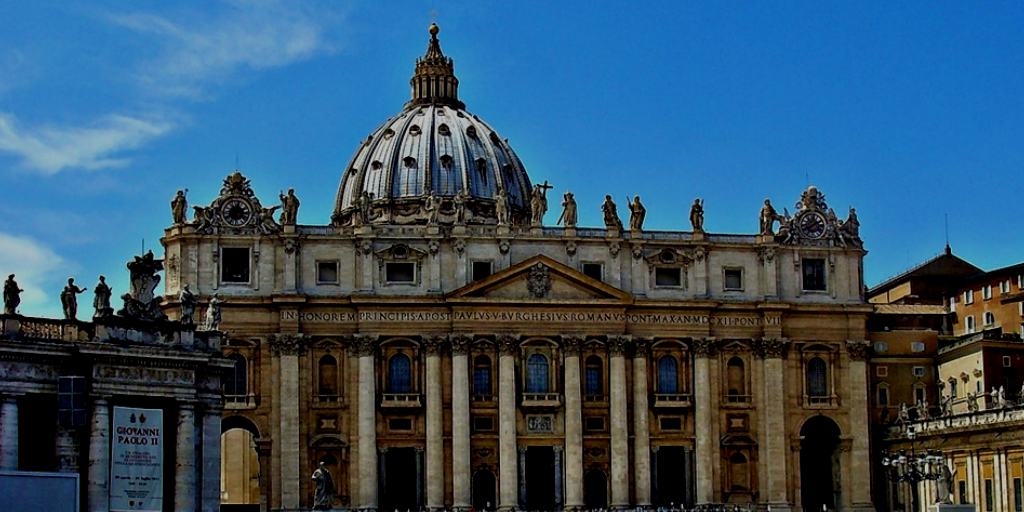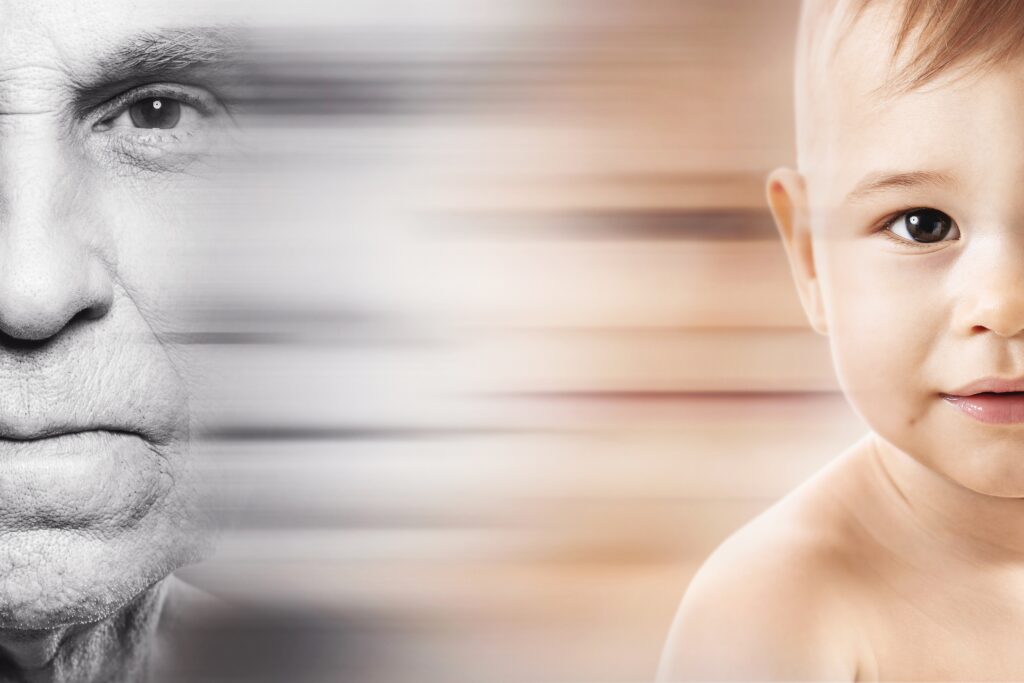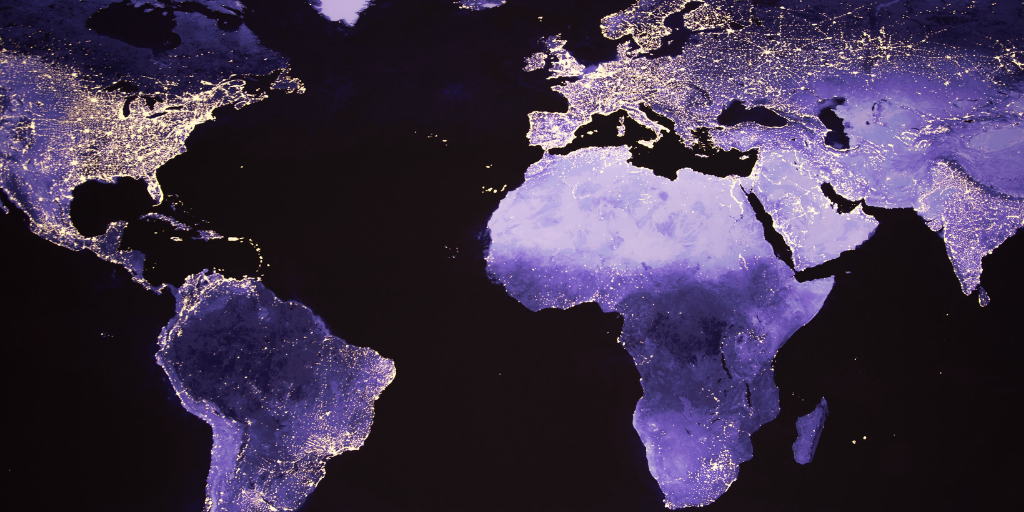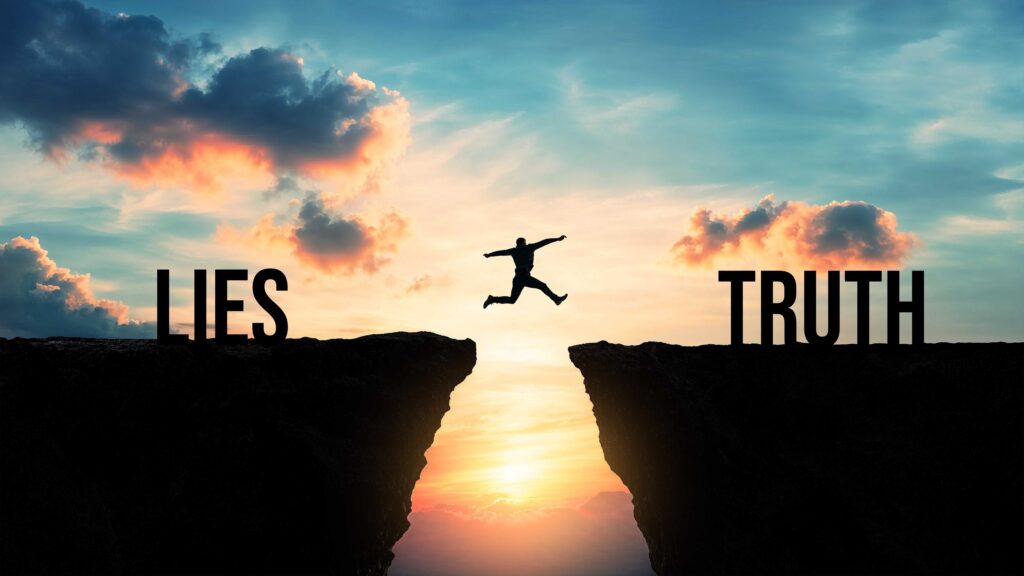An historical overview of the Catholic Church, a doctrinal comparison between Catholicism and the Bible, and answering whether all Catholics are Christian.
Short Answer
The Catholic Church shares some common theological history and beliefs with Reformed Protestantism, but also upholds major doctrinal differences with the Bible. Though the Catholic Church is a false church, it is impossible to condemn all Catholics are non-Christians because of the diverse nature of its billion-plus members.
Long Answer
The Catholic Church is one of the largest religious groups in the world. According to the BBC, in 2017 the Church boasted around 1.2 billion members worldwide. Around 40% of the world’s Catholics live in Latin America and one of the largest areas of growth is in Africa.
Though many refer to the Catholic Church as the Roman Catholic Church, it’s not always correct. In Catholicism there are different rites and the Roman rite is the largest rite which is why you will often see “Roman Catholic Church”. For now, I will use the more generic term “Catholic Church”.
In this post, my aim is to provide an historical overview of the Catholic Church from a Protestant perspective, show a doctrinal comparison between Catholicism and the Bible, and finally answer whether all Catholics are actually Christian.
Personally, I am a Reformed Baptist so I will review this history from a Protestant perspective. I grew up attending Catholic mass and though I was never a Catholic, my father’s family is mostly Roman Catholic.
A Very Brief History of the Catholic Church – By A Protestant
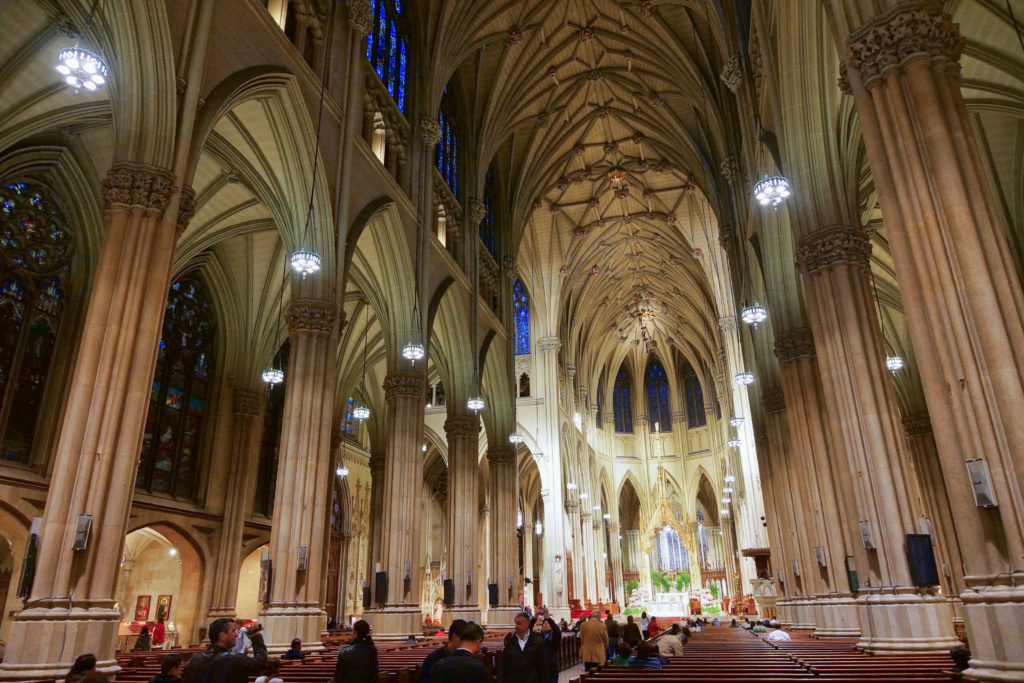
St Patrick’s Cathedral, New York City – Image credit: Wikimedia
The Christian church (not the Catholic Church) began around AD 30 when Jesus the Messiah was crucified, buried, resurrected, and ascended to heaven (1 Corinthians 15:1-4).
The Apostles preached the gospel and it spread from present-day Spain where Paul preached to present-day India where Thomas preached in the 1st century. Churches were loosely unified in doctrine (teachings) and cooperation in the early years, however more serious schisms developed in the 2nd century. At the same time, a hierarchical church government developed with popes and patriarchs at the top and laity at the bottom.
Through a series of creeds and church councils, the church identified the Scriptures and codified official theology on some controversial points. The groups who disagreed with prevailing doctrine left the main church and formed other sects. The biggest departure happened after the Council of Chalcedon in 451 when a portion of the Eastern churches departed for a non-Chalcedonian understanding of Christ’s nature. The Western Church would later emerge from the larger group of remaining Christians as the Catholic Church.
Depending on the source, the Catholic Church started around 590 when Pope Gregory I consolidated the lands near Rome under the church’s rule. Catholic doctrine began to develop at that time which had little to no Scriptural support. Nearly 500 years later, the Eastern half of the church split from the Western half in the Great Schism (1054) because of several issues. One of the reasons related to the Eastern church’s rejection of the Pope’s authority. The Eastern Church became known as the Eastern Orthodox Church while the Western Church became known as the Catholic Church.
The church later split in the 16th century during the Protestant Reformation. Various reformers like Martin Luther, John Calvin, and others rose from within the Catholic Church decrying moral lapses and ecclesial abuses. More seriously, false doctrine had become official dogma in Catholicism. The Catholic Church responded with The Council of Trent (1545, 1563) and further solidified its pre-Reformation doctrines while condemning all Protestants as heretics. What the Protestants rejected as false doctrine, the Catholics upheld as sacred tradition. The split was to be permanent.
Four centuries later at Vatican II (1962-1965), the Catholic Church sought to modernize its liturgy and doctrine and took a more accommodative stance toward theological liberalism and non-Catholic denominations. In general, Catholic doctrine has been fairly conservative related to morals, but this trend has subsided in recent decades. The Catholic church has drifted further left on many social and theological issues and suffered through many scandals and cover-ups. In short, the Catholic Church has had a rough few decades.
“For inquire, please, of bygone ages, and consider what the fathers have searched out. For we are but of yesterday and know nothing, for our days on earth are a shadow. Will they not teach you and tell you and utter words out of their understanding?” (Job 8:8-10)
Doctrine Comparison: Catholicism vs. The Bible
Conservative Protestants have much in common with Catholics. Both Protestants and Catholics affirm God’s creation of the universe, the Fall of Mankind, divine revelation, Jesus as the savior of the world, and many other historic Christian doctrines. After all, Protestant churches emerged from the Catholic Church so we share many common theological roots.
However, there are several significant theological disagreements. These divisions were so important they split the Western church five hundred years ago. In fact, these contentions are so serious many do not consider the Catholic Church a true church any longer.
Here is a doctrinal comparison between some critical theological claims. CCC is short for “Catechism of the Catholic Church” which is a summary of the official teachings of Catholic beliefs.
| Doctrine | Catholicism | Bible |
|---|---|---|
| Location of Authority | The Church does not derive doctrine from the holy Scriptures alone (but by) both Scripture and Tradition (CCC, 82) | Scripture alone is authoritative for all doctrine. "All Scripture is breathed out by God...that the man of God may be complete, equipped for every good work." (2 Timothy 3:16-17) |
| The Head of the Church | The Church does not derive doctrine from the holy Scriptures alone (but by) both Scripture and Tradition (CCC, 82) | Jesus is the head of the church: "Christ is the head of the church."(Ephesians 5:23) |
| Infallibility of the Pope (cannot err in doctrine) | "The Roman Pontiff...enjoys this infallibility in virtue of his office" (CCC, 891) | This is NOT found in the Bible. The New Testament instead presents a plurality of fallible elders who lead local churches. (Titus 1:5) |
| Justification by Baptism | Baptism saves a person. "Justification is conferred in Baptism." (CCC, 1992) | No work (including baptism) justifies a sinner before God.. "For by grace you have been saved through faith...not a result of works." (Ephesians 2:8) |
| Eucharist Sacrifice (Mass) | Christ is offered again on the altar through the Mass. "The Eucharist is thus a sacrifice because it (makes present) the sacrifice of the cross." (CCC, 1366) | The continual re-sacrifice of Christ is NOT in the Bible. "He has no need, like those high priests, to offer sacrifices daily...since he did this once for all when he offered up himself." (Hebrews 7:26-27) |
| Purgatory | Purgatory is a place of punishment for Christians who need their sins purged. "Every sin...must be purified either here on earth, or after death in the state called Purgatory." (CCC, 1472) | The Bible does NOT affirm the idea of Purgatory. Instead when Christians die, they immediately go to heaven. Jesus told the thief on the cross, "Truly, I say to you, today you will be with me in paradise." (Luke 23:43) |
| Penance | "The sacrament of penance is another way to remove sin. "Those who approach the sacrament of Penance obtain pardon from God's mercy for the offense committed against him." (CCC, 1422) | The Catholic concept of penance was originally based on a mistranslated phrase in the Latin Bible "do penance" instead of "repent" - or turn from your sins. (Matthew 4:17). The non-Biblical doctrine of penance does not remove sins. |
| Indulgences | Indulgences either removes or reduces time in Purgatory for Christians - indulgences were reinstated in Catholicism in the 20th century.. "An indulgence ...removes either part or all of the temporal punishment due to sin." (CCC, 1471) | The Catholic concept of "temporal sins" is NOT found in the Bible and thus an imaginary "indulgence" would not remove temporal sins. Instead, "Christ also suffered once for sins...that he might bring us to God." (1 Peter 3:18) |
| Worship Mary | Devotion to Mary is both taught and practiced widely. "The liturgical feasts dedicated to the Mother of God and Marian prayer, such as the rosary...express this devotion to the Virgin Mary." (CCC, 963) | Christians are to worship and serve God alone. "You shall worship the Lord your God, and him only shall you serve." (Luke 4:8) |
There are other Catholic practices that are troublesome from a biblical perspective. For instance, praying to saints, calling priests “father” (Matthew 23:9), praying repetitive prayers like the Rosary (Matthew 6:7), which have no grounding in Scripture. But what is widely practiced in Catholicism is not necessarily official doctrine. At the least, some of these practices are troubling. At the most it’s the Catholic Magisterium’s willful allowance of non-Christian practices within the Catholic Church.
“Keep a close watch on yourself and on the teaching. Persist in this, for by so doing you will save both yourself and your hearers.” (1 Timothy 4:16)
Are Catholics Christian?
 So can a Catholic be a Christian? On the one hand, it’s difficult to label every Catholic an unbeliever. Over one billion people practice the Catholic religion. And there are many types of Catholics like abortionists, to celibates, to theological radicals, to fundamentalists – the Catholic church seems to be a big tent that welcomes anyone who wants to be a Catholic. No doubt some in the Catholic Church have a high view of Scripture and are uncomfortable with the official teaching.
So can a Catholic be a Christian? On the one hand, it’s difficult to label every Catholic an unbeliever. Over one billion people practice the Catholic religion. And there are many types of Catholics like abortionists, to celibates, to theological radicals, to fundamentalists – the Catholic church seems to be a big tent that welcomes anyone who wants to be a Catholic. No doubt some in the Catholic Church have a high view of Scripture and are uncomfortable with the official teaching.
On the other hand, official Catholic doctrine is so far removed from biblical moorings the Catholic Church cannot be a true church. The Council of Trent condemned every then-Protestant in several pronouncements, one of which was Canon XII:
“If any one saith, that justifying faith is nothing else but confidence in the divine mercy which remits sins for Christ’s sake; or, that this confidence alone is that whereby we are justified; let him be anathema.”
In other words, official Catholic doctrine has officially rejected a core Biblical principle, “justification by faith alone.” Whereas Romans 3:28 says, “for we hold that one is justified by faith apart from works of the law,” the Catholic Church says anyone who holds that doctrine is to be anathema (damned). This is major issue.
Because the Catholic Church has rejected fundamental Biblical doctrines such as justification, by faith alone, worshiping and praying to God alone, Christ as the head of the Church, and Christ’s sacrifice for all sins of his people, I believe the Catholic Church is a false church. Ultimately, God is the judge of all people including Catholics who consciously or unconsciously hold to false doctrines.
“Therefore go out from their midst, and be separate from them, says the Lord, and touch no unclean thing; then I will welcome you.” (2 Corinthians 6:17)
Summary And Charge: Search The Scriptures
The Catholic Church has a storied and controversial past. Though most Western Christians trace their theological roots to the Catholic Church, many have left the Church for secularism, another religion, or biblical Christianity. It is my prayer that any Catholic reading this would strongly consider the above doctrinal comparison.
If you are a Catholic or are considering becoming a Catholic, I urge you to compare their teachings against the Bible. Catholics have a tendency to tell you things you like to hear. I’ve sat through many masses and left thinking there was nothing wrong with the message. But that doesn’t mean official teaching was correct – some official Catholic doctrine is pulled from the Bible. But anyone who puts their faith in the Church above Christ will not be saved. This goes for Catholics as well as Protestants.
“Now these Jews were more noble than those in Thessalonica; they received the word with all eagerness, examining the Scriptures daily to see if these things were so.” (Acts 17:11)
Resources
- Matt Slick put together an excellent overview on (Roman) Catholicism with answers to many common questions: Roman Catholicism
- Leonardo De Chirico (Video 26:24): Roman Catholicism Today

